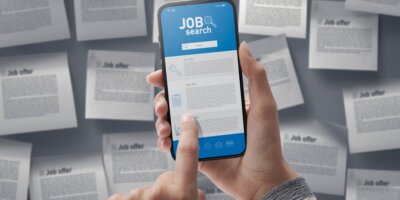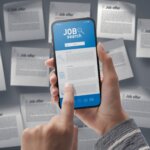
Increased AI adoption has seen an increased demand for AI jobs and skills. (Image generated by AI)
LinkedIn: AI jobs are the most sourced roles now
- The number of jobs mentioning AI is growing in Asia Pacific.
- Developments in AI are going to accelerate workforce learning and heighten the importance of skills
- Soft skills are also going to take center stage in the future world of work
When AI started solving and simplifying processes at work, there was a concern that jobs would be eliminated and roles made redundant. While there is no denying that some roles and jobs have suffered that fate, AI is still far from taking over jobs.
In fact, as companies continue to invest heavily in AI, many organizations now realize they need more talent to work with the technology. The hype of generative AI has created the desire to implement the technology in various processes at the workplace.
IDC data suggests that a third of Asia Pacific companies are heavily investing in generative AI in 2023, with nearly half exploring potential use cases within the future of work. Despite economic challenges, core tech initiatives and generative AI adoption remain strong.
With employees returning to work in the office, workplace intelligence is gaining traction, focusing on enhancing employee experiences and ensuring technology parity. Automation and advanced collaboration tools have gained prominence. The report also states that the Asia Pacific region leads in generative AI exploration, with investments in human capital management platforms increasing due to a heightened focus on company culture and employee experiences.
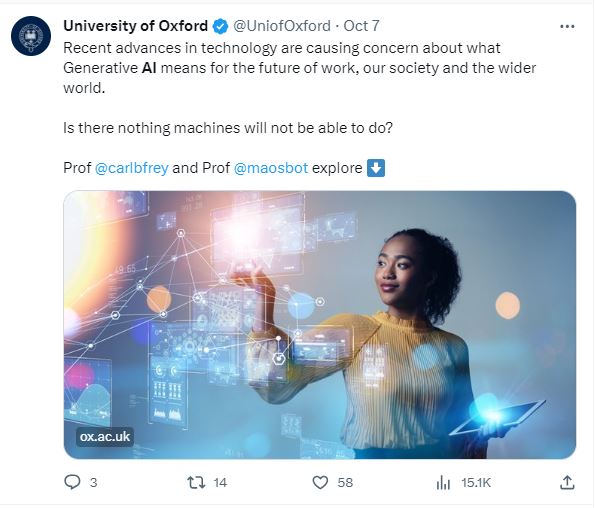
There is still a fear that AI will take over jobs.
Yet, with all this investment in AI, companies still lack the workforce and resources to ensure proper implementation. According to a McKinsey report, a major limiting factor in AI reaching its full business potential is the availability of individuals with the right skills and capabilities to continue innovating AI.
As such, companies are now actively looking to hire more talent in AI. With many AI jobs available, how can businesses pick the right talent? Can businesses reskill and upskill their current workforce? And what skills in AI do companies need? Is it just developers and data scientists? What about cybersecurity professionals and cloud architects?
Tech Wire Asia spoke to Feon Ang, vice president of LinkedIn Talent Solution and managing director, APAC, to get her views on how the platform is not only helping companies with AI jobs and reskilling and upskilling the workforce.
TWA: Has there been an increase in AI adoption in companies in Asia Pacific?

Feon Ang, Managing Director for Asia Pacific, LinkedIn.
Yes, definitely. Our recent Global Talent Trends report shows that job posts mentioning AI grew by 1.1x in Australia, 2.5x in India, 1.9x in Japan, and 2.4x in SEA over the last two years. In addition, these posts mentioning artificial intelligence/generative AI have seen their applications grow by 1.9x in Australia, 2.1x in India, 1.6x in Japan, and 1.7x in SEA over the last two years, compared with the growth of job posts that don’t mention them.
In addition, our recent Future of Work report tells us that members are picking up AI skills faster than the global average. For example, our data across 25 countries shows that the number of AI-skilled workers was nine times larger in June 2023 compared to January 2016. Singapore leads globally – it has the highest rate of members who have added AI skills to their profiles over time (20x). In APAC, India follows that at 14x, and Australia at 11x.
HR and talent acquisition (TA) professionals are more critical than ever before – they’ve had to lead through incredible transformations over the past few years with the pandemic, remote work, and changing skill sets. In fact, 90% of HR professionals say their role has become more strategic in the last year.
We see AI as a tool to remove some of the time-consuming tasks – like email follow-ups and hours of Boolean searches – so these professionals can focus on the most critical part of their jobs. 80% of HR professionals globally believe AI will enable them to focus on their roles’ more strategic, human aspects – such as strengthening relationships with candidates and colleagues (39%) and creative and strategic work (39%).
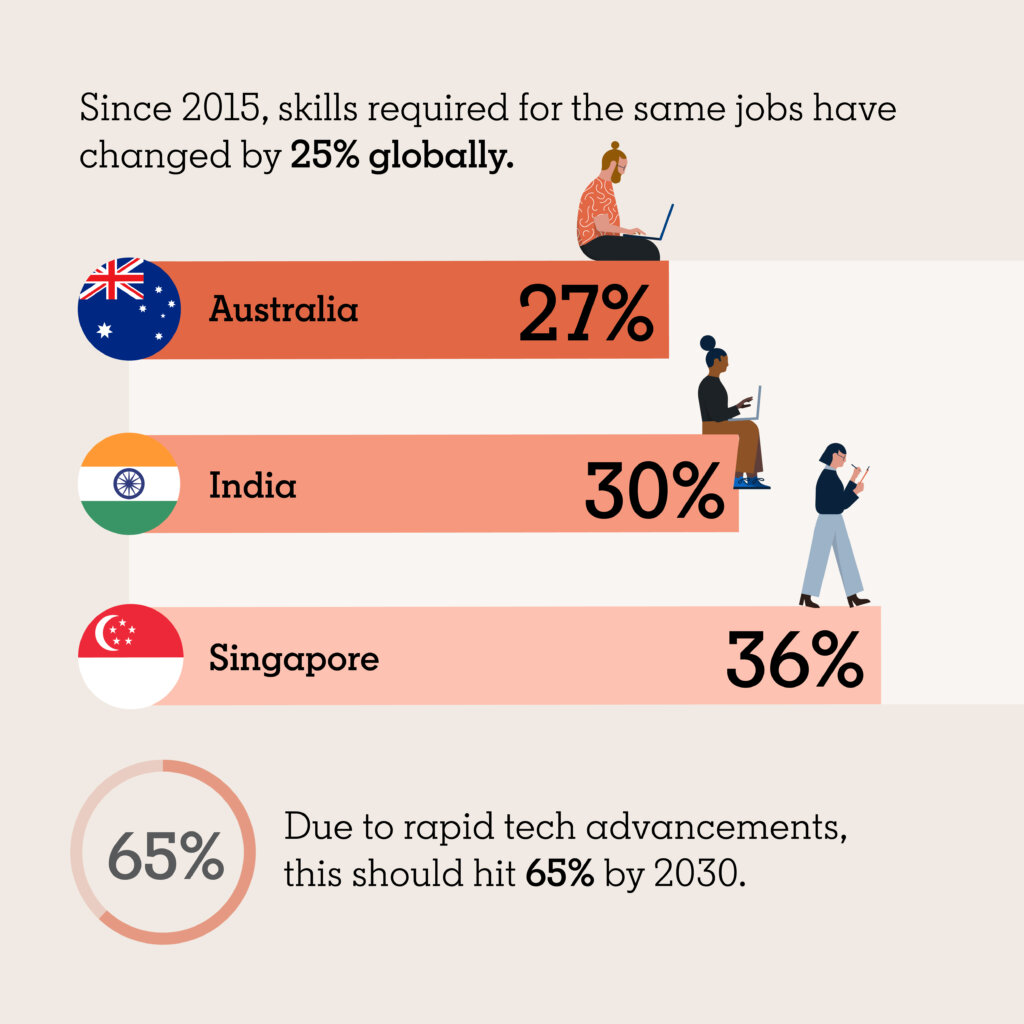
The Future of Work report tells us that members are picking up AI skills faster than the global average. (Image by LinkedIn)
TWA: While there is more demand for AI jobs, is there sufficient talent in AI in Southeast Asia?
The Future of Work report tells us that members are picking up AI skills faster than the global average. In line with this, we also see that the growth in AI talent hiring outpaced overall hiring in APAC, suggesting that these countries are now hiring more skills than in 2016. For example, in Australia, growth in AI hiring outpaced overall hiring by 12%, in Indonesia by 20%, in Japan by 24% and in Singapore by 14%.
I believe these new developments in AI will accelerate workforce learning and heighten the importance of skills. As AI is increasingly being incorporated into organizations and our work, we will see greater emphasis on skills development.
For instance, 4 in 10 executives in Australia and 5 in 10 in India plan to upskill or hire AI skills in the coming year. Bringing a skills-first approach to the center of talent management is the surest way to expand companies’ talent pools via skills-based hiring, upskill their current employees, and build agility into their workforce in the future world of work.
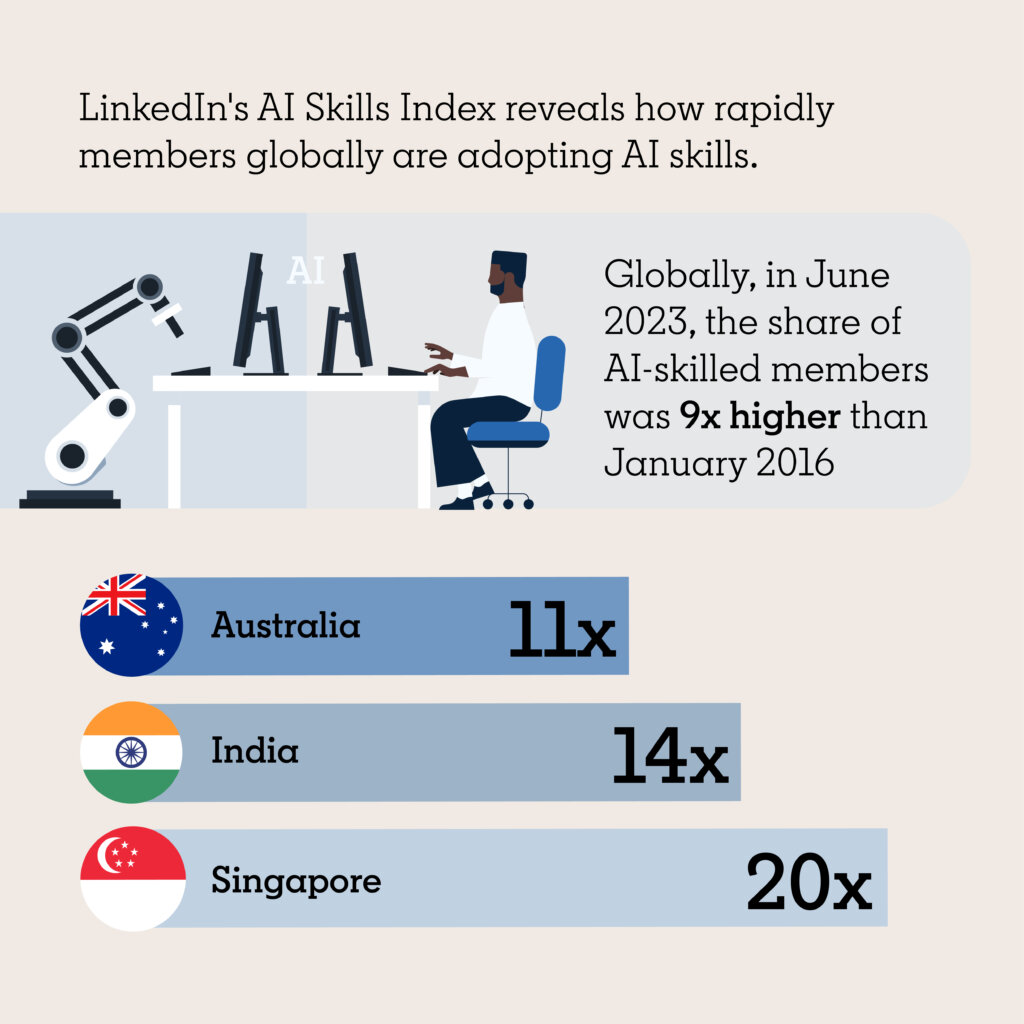
To meet the demand for AI jobs, employees are picking up skills faster. (image by LinkedIn)
TWA: What are the most popular AI skills being picked up by employees?
When we look across some of the key economies in APAC in particular, the top three AI skills that professionals are picking up are:
- Australia: machine learning, AI, deep learning
- India: machine learning, data structures, AI
- Indonesia: machine learning, AI, deep learning
- Japan: machine learning, AI, deep learning
- Singapore: machine learning, AI, deep learning

It’s all about having the right skills when working with technology. (Image generated by AI )
In addition to AI-related skills, we see that soft skills are going to take center stage in the future world of work. The top four soft skills that the majority of professionals agree will become more important as AI tools become more widely used at work are – problem-solving (61.76%), time management (61.29%*), adaptability and relevance (60.47%*) and strategic thinking (60.26%*).
- Problem-solving: 57% in Australia, 69% in Singapore, 77% in India, 75% in Indonesia, 77% in the Philippines, 69% in Malaysia and 42% in Japan.
- Time management: 54% in Australia, 65% in Singapore, 78% in India, 76% in Indonesia, 78% in the Philippines, 68% in Malaysia and 42% in Japan.
- Adaptability & relevance: 60% in Australia, 69% in Singapore, 74% in India, 72% in Indonesia, 76% in the Philippines, 66% in Malaysia and 41% in Japan.
- Strategic thinking: 56% in Australia, 67% in Singapore, 74% in India, 76% in Indonesia, 78% in the Philippines, 67% in Malaysia and 40% in Japan.
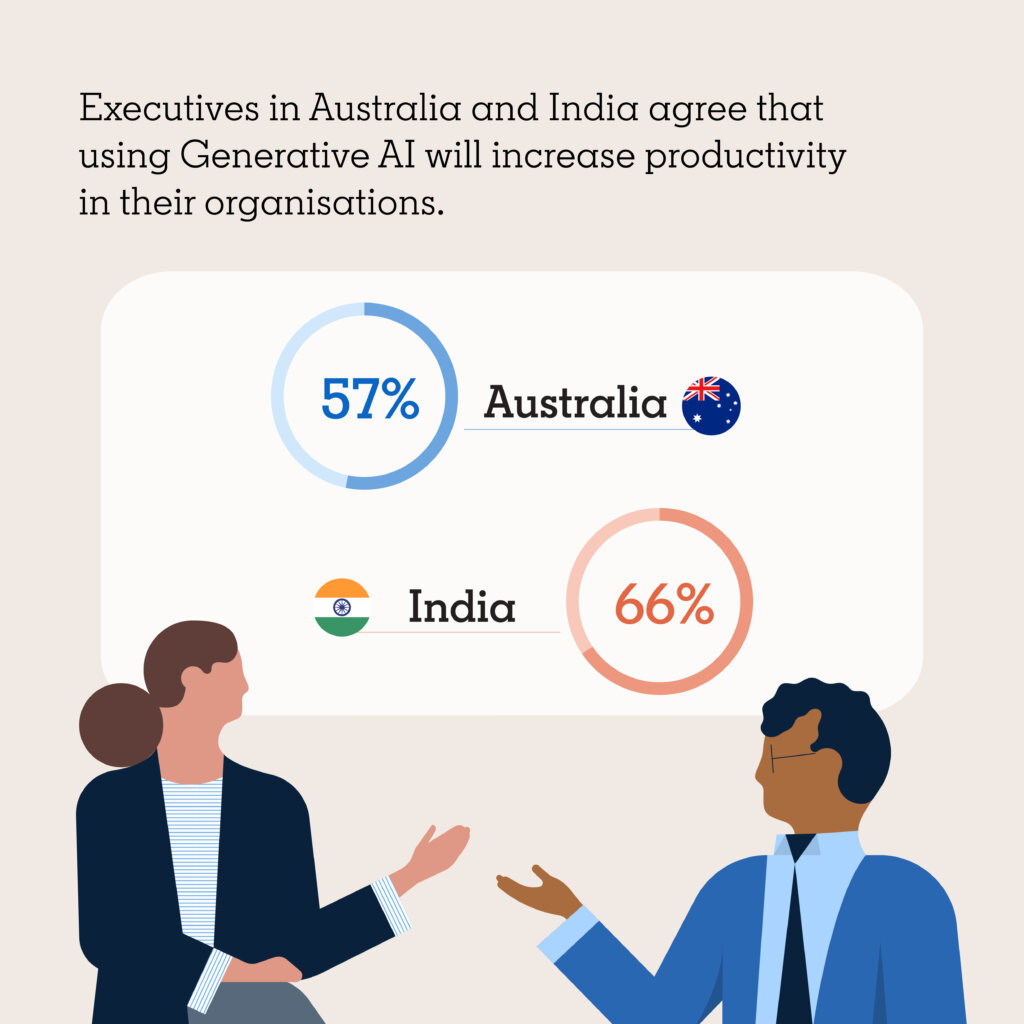
The growth in AI talent-hiring outpaced the growth in overall hiring in APAC. (Image by LinkedIn)
TWA: The survey shows an increase in using AI to seek advice on jobs and career direction as well as handling difficult situations at work. Can we rely on and trust AI on this?
In an increasing economic complexity, AI can revolutionize many types of work, bringing people greater satisfaction, improving productivity, and serving as a differentiator for organizations. We view AI as a tool, just like the tools from our past that have each helped humans reach new levels of prosperity and progress, for example, PCs, the internet, and even electricity.
For workers, AI can help us do the work we most enjoy – and are best at – with more of our time. AI can help companies manage routine tasks more easily while creating space and support for teams to think more innovatively. For HR, TA, and L&D leaders, AI will be a critical tool for heavy lifting so that HR teams can focus on the most strategic and human aspects of their roles.
In this AI-powered world of work, I believe organizations can stay competitive in two ways. First, place a deep focus on skills when hiring and developing talent. Today, 4 in 10 hirers on LinkedIn now explicitly use skills data to fill their roles, and 90% of L&D professionals agree that proactively building employee skills for today and tomorrow will help navigate the evolving future of work. This gives companies an advantage because it means they have a workforce with the skills they need to be agile and adapt, even in challenging times.
Second, guiding employees through any career challenges they may face. One notable trend we see today is that professionals’ confidence in career prospects is declining. Compared to a year ago, most respondents to our 12-country Workforce Confidence Index have shown they are less confident in their career chances (Australia down 8 points, India down 2 points). And the majority of professionals in APAC (58%) are looking forward to using AI to seek career advice or handle difficult situations at work.
We’ve just announced the pilot of our LinkedIn Learning’s AI-powered coaching experience – a chatbot experience that can instantly offer employees real-time advice and highly personalized course recommendations.
Above all, workers themselves must adopt a growth mindset. I would advise them to pick up new skills, especially those in-demand and soft skills. That will help them use tools like AI and win in the future world of work.
READ MORE
- Next-gen CX is based on customer communication management systems.
- Enhancing Business Agility with SASE: Insights for CIOs in APAC
- 3 Steps to Successfully Automate Copilot for Microsoft 365 Implementation
- Trustworthy AI – the Promise of Enterprise-Friendly Generative Machine Learning with Dell and NVIDIA
- Strategies for Democratizing GenAI



